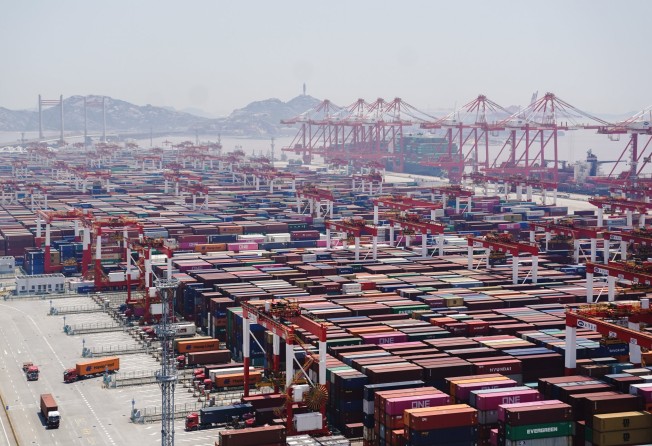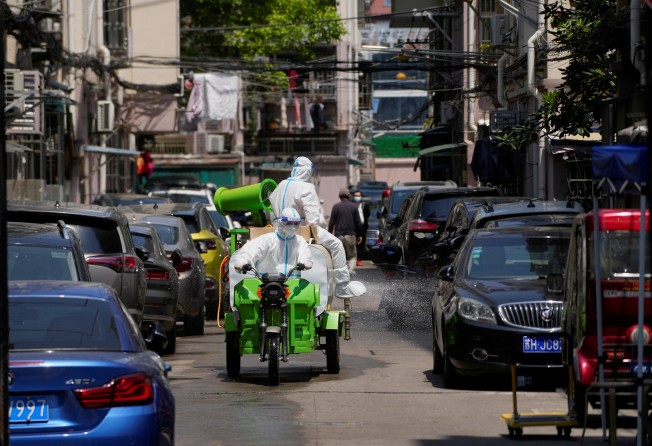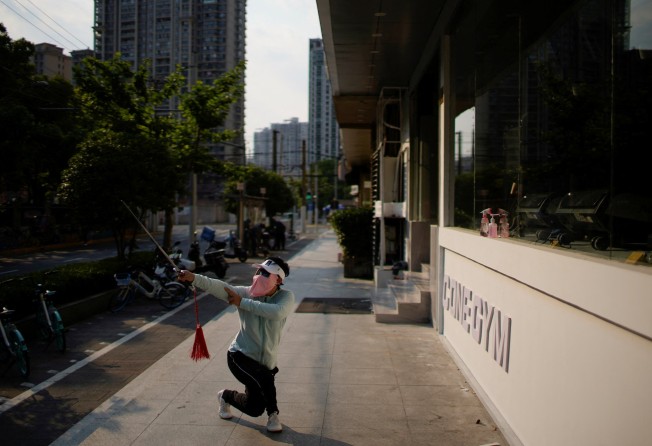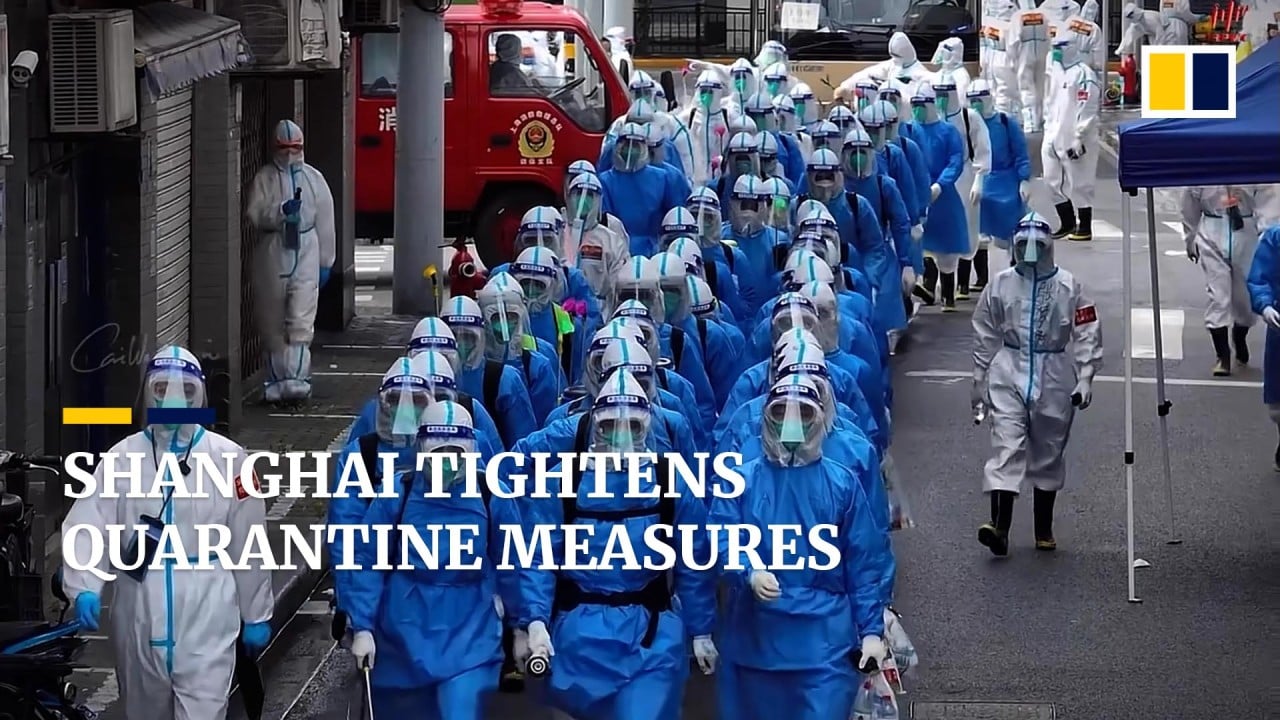
Coronavirus: Shanghai Covid cases remain at zero outside quarantine zones for fourth day, putting city on path towards normalcy
- The fourth straight day without new infections in unguarded zones means the city maintains the societal zero-Covid status it first achieved on Tuesday
- Total new cases rose for the first time in five days, by 3.8 per cent, but the number of people living in fully sealed off compounds declined 8 per cent to 790,000

Shanghai has reached four straight days without new Covid-19 infections in its low-risk, unguarded zones, according to data released on Wednesday morning, keeping the city on a path toward a return to normalcy by the end of June.
The lack of new cases in these zones means the city maintains its long-pursued societal zero-Covid status across its 16 districts, a watershed achievement officials first declared on Tuesday.
“The good news is that no positive cases were discovered in Shanghai’s unguarded zones for the fourth day,” said Zhang Chaoyue, an analyst with Northeast Securities. “The city maintained the status of societal zero-Covid.”
However, total new cases over the last 24 hours rose for the first time in five days, adding 3.8 per cent to 854. Symptomatic cases also increased, for the second consecutive day, to 96 – a 24.7 per cent increase from a day earlier. Three patients died.

These increases provided a reminder that the risk of a resurgence remains and appears to justify the measured approach to easing restrictions that officials have outlined.
“Despite the fact that Shanghai has achieved the societal zero-Covid goal, risks of infections among some high-risk people are still there,” Zhao Dandan, deputy director of the Shanghai health commission, told a press briefing on Wednesday. “We still need to strictly implement virus control policies, such as conducting tracking and tracing tactics swiftly, to deal with emergencies.”
Zhao said that 790,000 people are now living in “lockdown areas”, with their residential compounds entirely sealed off. This represents a reduction of 8 per cent from 860,000 a day earlier.
City authorities “will switch to a ‘normal virus control’ mode from June 1 to mid-June or late June,” by which time “daily life and production will return fully to normality,” Vice-Mayor Zong Ming said at a press conference on Monday, adding that officials will remain vigilant to prevent any rebound in new cases.
Residents in the precautionary zones will be allowed to leave their compounds to go shopping in a gradual way before June 1, Zong said.
Some shopping centres, supermarkets, restaurants and barber shops around residential compounds that had been free of community infections for the past 14 days reopened on Monday.
But few shoppers have showed up at the outlets because local authorities took a go-slow approach in easing the pandemic curbs.
A strained supply chain is slowing output at key manufacturers that resumed operations from mid-April under the closed loop system, which sees workers sleeping on site to avoid contact with outsiders.

Tesla’s Gigafactory 3 in Shanghai, also known as Giga Shanghai, has fallen short of production goals as it suffers supply chain disruptions. The facility is able to produce only 1,200 Model 3 and Model Y vehicles a day – just 45 per cent of its full capacity of 2,600 units a day. It had expected to fully restore production on May 16.
Liu Bo, deputy director of Shanghai Customs, said that companies in the semiconductor, biomedicine and automotive sectors will be given preference for custom clearance, as local authorities hope to restore a broken supply chain for the three backbone industries quickly.
“Priority will be given to the industries with fast review and fast approval to enable the goods to be delivered to the factories promptly,” he said.
Many Shanghai-based companies in the three sectors rely on imported components or raw materials to keep their facilities running.
Since late April, foreign businesses operating under the closed loop system have been complaining about the disrupted supply chain and the lack of lorries plying between Shanghai and its neighbouring cities, which has prevented them from fully using their production capacity.
Last week, a survey by the American Chamber of Commerce showed that about 60 per cent of the respondents reported reduced production capabilities caused by a lack of employees and an inability to get hold of raw materials.
Cumulative cases in Shanghai stood at 622,000 since the outbreak began on March 1. The city went into a lockdown from April 1.
